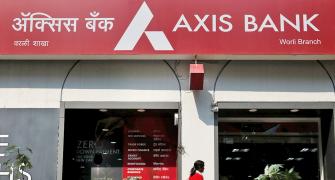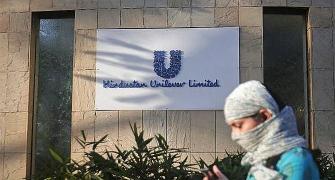In the President's address to Parliament last week, the United Progressive Alliance government announced its intention to resume disinvestment as a way to bring the fiscal situation back under control.
Of course, it would not consider surrendering its majority stake in the enterprises in which it decides to dilute its holding.
The merits of retaining majority stakes versus those of ceding control to the private sector have been debated at great length and the issue is really not worth resurrecting.
At this point, any progress is better than none and if the government feels that it needs to operate within the said constraints in order to provide political legitimacy to the process, so be it.
That having been said, however, there are better and worse ways of achieving the same objective and the government should ensure that it follows the route that yields the best realisation on the assets it chooses to sell at the lowest transaction cost.
The best way to achieve the objective is through the Qualified Institutional Placement route, which is now routinely used by the private sector to raise equity from the market. Bidding by a group of large, informed investors provides the highest likelihood of the assets receiving the best valuation.
The process will take relatively little time as the modalities are less demanding than those for a full-scale public offer, and hence the government should be able to raise far more money than through a more cumbersome IPO process that can take many months, especially if the intention is to maximise disinvestment revenue during the current financial year, when the Budget is under severe strain.
From the fiscal perspective, one issue that needs to be kept in mind is that a public offer exclusively to domestic investors will simply result in a re-allocation of private portfolios from government debt to equity in public enterprises. The degree of 'crowding out' will be determined by the overall fiscal gap.
The only benefit that the government's finances will receive from this is that it will save on interest payments in subsequent years. To reduce crowding out, the disinvestment process has to attract foreign resources that otherwise would not have ventured into the country.
One half of that problem is already addressed by the companies that will presumably be on offer. The Navaratnas and many other public enterprises that are already listed are in sectors that offer steady revenues with low risk.
They are typically in sectors that are closely aligned with the growth process, making them attractive long-term prospects. As global investors return, however gingerly, to emerging economies, this category of assets will prove to be good magnets.
This is where the mode of disinvestment plays a role. The QIP route is quick, transparent and can provide a direct conduit for interested foreign investors.
Of course, it need not shut out domestic investors, particularly small ones, an objective that the President's address emphasised. One way of doing this is by involving the mutual funds, who can come in through QIPs.
Another way to include the public at large in an exercise like this is by having aggregative mechanisms like the Employees' Provident Fund and the New Pension Scheme participate.
As the coverage of these schemes expands, so does the stake that the aam aadmi has in the good performance of these companies. Besides which, retail investors can always buy shares directly, in the secondary market.








